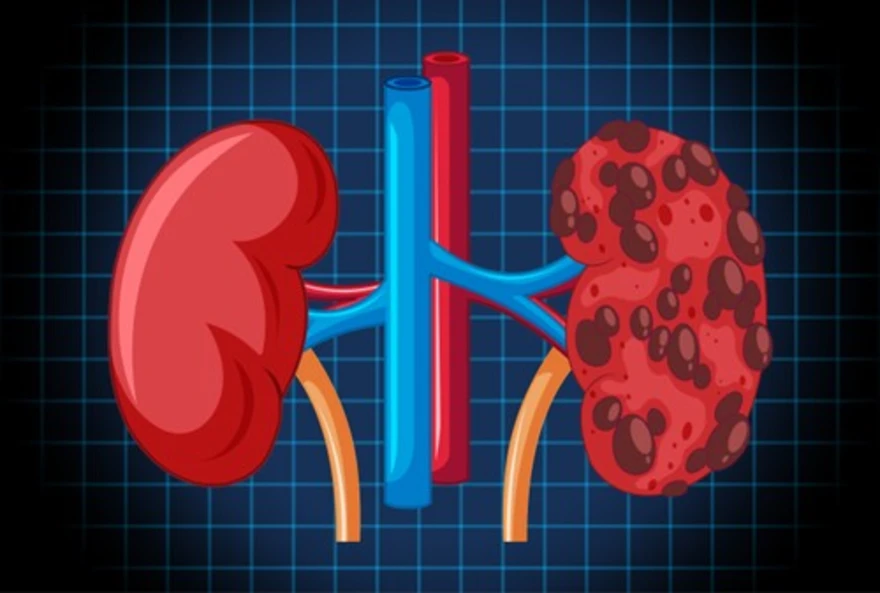Insulin (Fasting) Test
Insulin Test Overview
Insulin is a hormone secreted by beta cells of the pancreas and is involved primarily in carbohydrate metabolism and maintaining normal blood glucose levels. High levels of serum insulin can indicate diabetes, while low levels indicate problems with the pancreas. Type 1 diabetes (insulin-dependent diabetes) is caused by insulin deficiency and Type 2 diabetes (noninsulin-dependent diabetes) is characterized by insulin resistance.
Reasons for Undergoing the Insulin Fasting Test
The insulin fasting test is a crucial diagnostic tool for assessing insulin production and blood sugar regulation in the body. There are several key reasons why your doctor may advise you to take this test:
-
To determine the cause of hypoglycemia (low blood sugar) if you experience symptoms like trembling, sweating, confusion, irregular heartbeats, and extreme hunger
-
To identify insulin resistance, a condition where your body's cells do not respond normally to insulin, leading to elevated blood sugar levels
-
To screen for diseases like prediabetes, diabetes, and gestational diabetes, and to manage them if already diagnosed
-
To monitor the treatment of type 2 diabetes and decide whether you need to take insulin as part of your treatment plan
-
To detect the presence of an insulin-producing tumor in the pancreas (insulinoma), indicated by high insulin levels with low blood glucose
-
To assess the functioning of your pancreas, including monitoring after surgeries like islet cell transplantation or removal of an insulinoma
List of Parameters Considered During the Insulin Fasting Test
The serum insulin test measures several key parameters to assess your body's insulin production and glucose regulation. These include:
-
Insulin Levels: Measuring the amount of insulin in your blood after fasting helps indicate how well your body is producing and using insulin. High levels can suggest insulin resistance, type 2 diabetes, or an insulin-producing tumor, while low levels may indicate type 1 diabetes or pancreatitis.
-
Blood Glucose Levels: Often measured along with insulin levels, blood glucose helps diagnose conditions such as hypoglycemia, hyperglycemia, and insulin resistance.
-
C-peptide and Proinsulin Levels: These insulin precursors help distinguish between endogenous (body-produced) and exogenous (externally administered) insulin. High levels along with high insulin and low glucose can indicate an insulinoma.
Home Collection for Insulin Fasting Test Near You
At Metropolis Healthcare, we understand your convenience and well-being. That’s why we offer a seamless home sample collection service for your fasting insulin tests. Our skilled and trained phlebotomists will visit your home to collect your blood sample, adhering to the highest standards of safety and precision in sample handling.
You can rely on us for accurate, dependable results, ensuring that your health is in trusted hands. With our commitment to accessible healthcare, you can experience our top-notch diagnostic services from the comfort of your home. Choose Metropolis Healthcare for a hassle-free, efficient healthcare experience.
Insulin (Fasting) Test Price
Metropolis Healthcare is a leading diagnostics centre and pathology lab in India equipped with the latest state-of-the-art technologies that provides the Insulin (Fasting) Test with a clear pricing structure.
The Insulin (Fasting) Test Price in Mumbai is ₹ 1,080.
We are committed to deliver accurate and quality results from the best labs in India with complete transparency regarding test cost and turnaround time. No matter where you are, we strive to offer patients high-quality service that is affordable and accessible.
Frequently Asked Questions
- Fasting Insulin levels are done to determine if insulin resistance in cells is the cause of hyperglycaemia (high blood sugar)
- It is done to assess if pancreas is producing adequate amount of Insulin
- Antibodies to insulin form in longstanding diabetes mellitus treated with insulin hence in these patients monitoring insulin levels gives better prognosis
Insulin test measures insulin levels in the blood sample of a fasting patient.
Insulin test requires a blood sample. A tourniquet (elastic) band is placed tightly on the upper arm. The patient is then asked to make a fist. This helps in the build-up of blood filling the veins. The skin is disinfected before needle insertion and the blood sample is collected in vacutainer.
- Normal fasting insulin & glucose level - Normal patient
- High fasting insulin & normal or slightly high glucose - Insulin resistance
- Low fasting insulin & high fasting glucose level - Insufficient insulin production i.e., Diabetes
- Normal or high fasting insulin and low glucose level - Over secretion of insulin e.g., insulinoma, factitious hypoglycaemia, Cushing syndrome
Obesity, hypothyroidism, and a high-carbohydrate diet are all linked to hypoinsulinemia, or low insulin levels. The levels of both insulin and glucose can occasionally rise as a result of the increased resistance of the cells to insulin. When the pancreas eventually becomes injured, the production of insulin is reduced, which leads to hypoinsulinemia.
Insulin has many purposes, one of which is enabling your cells to absorb blood sugar for energy. However, hyperinsulinemia can result in excessive weight gain and major health issues including cancer and heart disease.
If diabetes is not properly managed, it can harm the clusters of blood vessels in the kidneys that filter waste from the blood. This can lead to kidney damage and high blood pressure, which can also put extra strain on the kidneys' filtration process and exacerbate existing kidney issues
The following tests will be ordered along with the insulin (fasting) serum test:
- Glucose test
- C-peptide test
- Fasting Insulin Test
- Serum Insulin Test
- Insulin test
- Those with a family history of diabetes
- Those with a sedentary lifestyle
- Individuals who are overweight
- Those with high blood pressure or cholesterol
- Those experiencing frequent urination or increased thirst
- Those exhibiting signs of fatigue, blurred vision, tingling in the hands or feet
- Individuals who have had gestational diabetes during pregnancy
- Those with PCOS (Polycystic Ovary Syndrome)
- Elderly people
The Insulin Fasting Test is a blood test that measures your insulin levels after 8-12 hours of fasting. It helps monitor your body's insulin production and the ability to regulate blood sugar, crucial for diagnosing and managing diabetes, prediabetes, and insulin resistance.
The Insulin Fasting Test is essential for an early detection of metabolic disorders such as prediabetes, type 2 diabetes, and insulin resistance. It helps diagnose the cause of low or high blood sugar and is crucial for managing diabetes treatment.
The benefits of the Insulin Fasting Test includes an early detection and diagnosis of metabolic disorders, monitoring diabetes treatment, identifying the insulin resistance, detection of pancreatic tumors (insulinomas), and providing insights into your overall metabolic health and risk for chronic diseases.
For the most accurate results, fasting for 8–12 hours before the insulin fasting test is usually required. Your doctor will provide any specific instructions, including whether fasting is necessary. Additionally, inform your doctor about any medications you are taking, as they may potentially affect the results.
Fasting alone may not reverse insulin resistance, but when combined with a healthy diet and regular exercise, it can help improve insulin sensitivity and reduce insulin resistance as part of a broader lifestyle change.
Yes, you can have high insulin levels without being diabetic. High insulin can indicate insulin resistance, a precursor to type 2 diabetes. Other conditions like Cushing's syndrome or an insulin-producing tumor can also cause high insulin levels.
Normal fasting insulin levels typically range between 2.6 and 24.9 mcIU/mL, but these ranges can vary slightly depending on the laboratory and individual health factors.
Yes, medications like steroids and lifestyle factors such as being overweight, having a high-calorie diet, a sedentary lifestyle, and chronic stress can affect insulin levels and the results of the Insulin Fasting Test.
The Insulin Fasting Test helps diagnose or monitor diseases like Type 1 and Type 2 diabetes, prediabetes, gestational diabetes, insulin resistance, insulinoma (pancreatic tumor), Cushing's syndrome, and pancreatitis.
Yes, many diagnostic labs, including Metropolis Healthcare, offer home sample collection services for the fasting insulin test. This convenient service allows individuals to have their blood samples collected by trained phlebotomists at home, ensuring a safe and effortless experience.
The Insulin Fasting Test reports are usually available after 6 hours after the day/time sample is collected and processed.
Ratings & Reviews (0)
Why Metropolis?
Metropolis has a team of 200 senior pathologists and over 2000 technicians delivering diagnostic solutions in the areas of routine, semi specialty and super specialty domains like Oncology, Neurology, Gynaecology, Nephrology and many more.
We offer a comprehensive range of 4000+ clinical laboratory tests and profiles, which are used for prediction, early detection, diagnostic screening, confirmation and/or monitoring of the disease.





















 WhatsApp
WhatsApp







